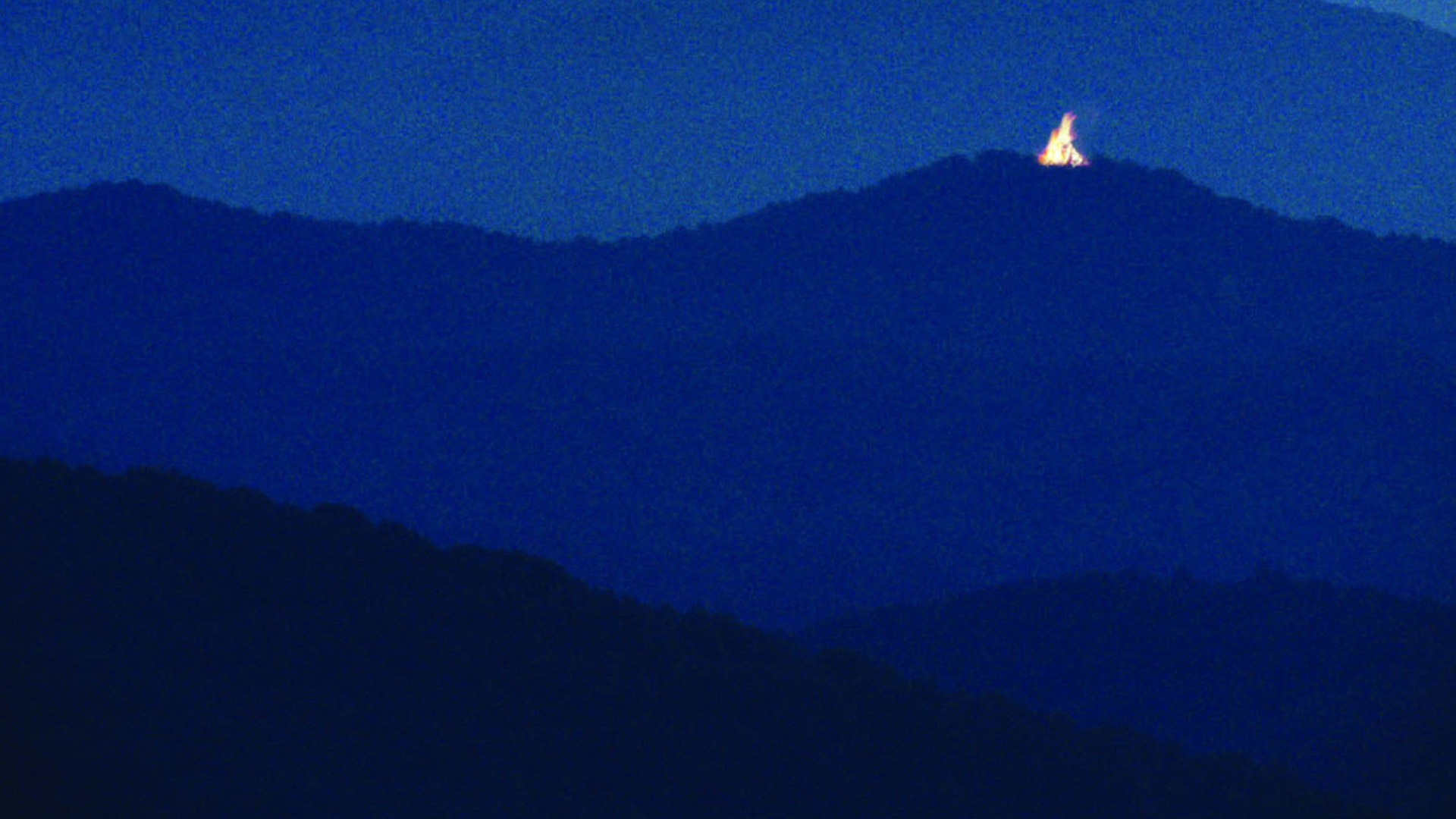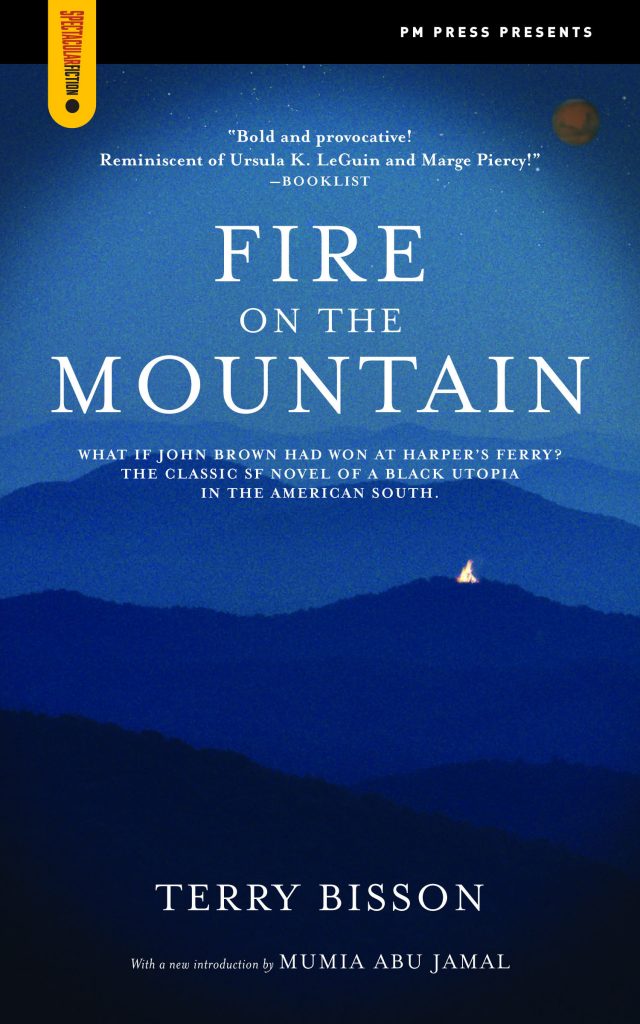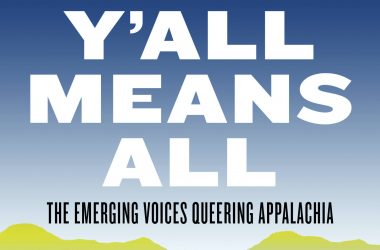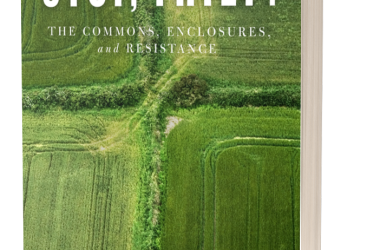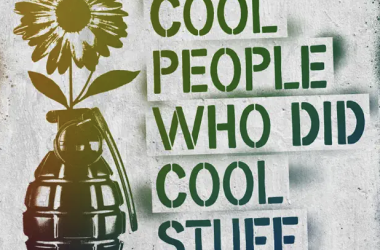
Cover-art detail, “Fire on the Mountain,” by Terry Bisson, PM Press.
In Terry Bisson’s provocative counterfactual novel “Fire on the Mountain,” a Black socialist utopia rises in the Deep South after John Brown’s 1859 raid on the federal arsenal at Harper’s Ferry succeeds in setting off a slave revolution.
A bracing, multi-layered work of alternate history, Bisson’s book imagines a world where the Confederacy and the Civil War never happen, Lincoln is not fondly remembered, the United States is transformed by a Second Revolutionary War in the 1940s, and the 20th century of Jim Crow and the Cold War is a bad dream that never comes true.
Bisson’s book was first published in the United States by PM Press, and is excerpted here in three parts by kind permission of the author and publisher.
In the first excerpt, Dr. Abraham recalls his childhood as a slave in Harper’s Ferry, in the days immediately following John Brown’s raid on July 4, 1859
The second follows Dr. Abraham’s great granddaughter Yasmin as she visits Harper’s Ferry in 1959 to deliver his written narrative to a museum curator. Along the way, she gets her car repaired by Elvis Presley.
The final excerpt is a pair of letters from Dr. Abraham’s teacher, Dr. Thomas Hunter, a white abolitionist whose riveting correspondence recounts his militant radicalization at a speech by Frederick Douglass at Bethel Church in Baltimore, in the tumultuous months following Brown’s July 4 raid.
I — Dr. Abraham’s Narrative, 1859
That night I went to see Cricket out at Green Gables, the plantation two miles out of town where Mama had lived before she’d been bought by old Deihl. Like most town folk, I had mixed feelings about field slaves. They seemed ignorant, passive, backward; yet I was drawn to them inexplicably as if toward a dream I had forgotten and was trying to remember. There were almost thirty Africans at Green Gables, and they usually knew the truth of things, since the plantations were on the “peavine” that didn’t pass through town. Like a fool, I was as excited by the horse as by the raid, but Cricket soon set me straight. “Once we get freedom,” he said, “then we’ll have all the horses we want.” It began to dawn on me, that the fighting in Harper’s Ferry had some purpose besides making the white folks angry and providing me with a little excitement.
“I saw them this morning,” I said. “Honest. They were walking into town, all with guns, and one of them …”
“Hush,” Cricket said, rapping the top of my head with his big knuckles. “Learn to keep your big mouth hushed up.” I almost cried, he hit so hard. Cricket was three years older than I, and when you’re twelve that seems like a century. Cricket was my cousin; he was my mentor, my secret idol, the big brother I’d never (I then thought) had. All the black folks were talking about the raid anyway, so I didn’t see why I couldn’t. There was a granny woman at Green Gables, and she said that God would send a sign of deliverance, a fire on the mountain. Sure enough, as soon as it got darker we saw it, blazing like a star that had come down and landed right on top of the ridge. All the talking stopped. All you could hear was wood and leather hinges creaking and children being hushed as everybody came out of the cabins and stood there watching, watching, watching.
“Fire on the mountain,” the granny woman said. “They up there sharpening they swords.” Then she said that word again: freedom. It had a shivery ring to me, and I wasn’t sure I liked it. I was afraid of granny women anyway. I told Cricket, and he told me to hush up again, then put his arm around my shoulder as if to apologize, and we stood there watching. I was nervous; I was afraid the white folks would see us and know what we were thinking. I looked behind me to the big house, but the curtains were all drawn. The granny woman must have seen me look around, or maybe others had done the same. “They trembling just like in the Bible,” she said. “Trembling just like in the Bible.” The fire blazed on, and finally I went home.
II — Yasmin’s Journey, Nova Africa, 1959
Like all kids, Harriet loved to peel growstone: softer than balsa wood but stronger than concrete, it flaked off satisfyingly in thumbnail-shaped moons. She amused herself with the bridge rail (which would, of course, grow back smooth again) while the grown-ups argued; then she asked the question she already knew the answer to.
From here the road led across the top of the mountain, through Bear Pond Gap, Grissom told her. “Should we drive up there and have a look? Like your father,” he said, “you’re drawn to the high places.”
That made Harriet grin and made Yasmin angry. She couldn’t tell if Grissom had said it to defy her silence about Mars, or to acknowledge it and make it seem more natural. Either way, his presumption angered her.
“Harriet, quit picking at the bridge,” she said, and got into the driver’s seat. It was, after all, her car. Sort of.
The top was a disappointment. The mountain was covered with white oak, maple, and hickory forest, turning beautiful in October colors; but there were few pines, no bare rocks, no feeling of height, even though they were at over a thousand feet. The mountain top was broad and flat where the road crossed and there was no view. Harriet got out of the car anyway, and stood on her tiptoes, as if maybe that last inch would reveal something.
Yasmin was just getting out of the car when, suddenly, two people crashed out of the brush at the side of the road. It was a man and a woman carrying backpacks topped with tents and bedrolls. Yasmin jumped back. With a wave the two crossed the road and disappeared into the brush on the south side of the road. Yasmin leaned back against the car, alarmed at how her heart was pounding. For a second, with their giant backpacks and white hats, they had looked like P.A.S.A. cosmonauts.
“There is a trail that runs along the top of the mountain, following the route of the Army of the North Star,” Grissom was explaining to Harriet. Then he noticed Yasmin looking as though she’d seen a ghost: “Are you okay?”
She nodded.
“Hundreds of people hike it every year,” Grissom went on. “Not just Mericans and n’Africans, but Canadians, Quebecois, Oka, Dineh, even Europeans. All the way from New England to Alabama. The section from Harper’s Ferry to here is especially pretty; it goes past False Fire, only a mile from here.”
“Have you ever hiked it?” Harriet asked.
Yasmin scowled at her daughter as she got back into the car. What a question to ask a one-legged man. But Grissom didn’t seem to mind.
“All the way. As a boy scout from Chicago, forty years ago. Before the Revolution,” he said. “Since then, not so much.”
“Why don’t you get a pseudo-leg?”
“The hip’s all messed up, nothing to work it with.”
“Can’t you hike on crutches?”
“You probably could from here; you’re already on top of the mountain. The trail coming up from the river is rough, though. I’ll show it to you; you can see the beginning of it from the museum. What’s that noise?”
Yasmin pulled the starter again.
Te-oonk te-oonk te-oonk
“What is this?”
Te-oonk te-oonk
The engine fired, then there was a horrible clatter like dishes falling.
“Shut it off!” Grissom yelled.
Yasmin had already shut it off. “What was that?”
“I don’t know. I think you lost your polarization.”
“What does that mean?”
“Are we stuck?” Harriet asked.
“It means we switch over to planetary drive,” Grissom said.
“Planetary?” Yasmin said, moving over and letting him into the driver’s seat. “What’s that?”
“Mother!” Harriet was already pushing, laughing.
Yasmin got out and joined her.
“Planetary drive. Gravitational. In layman’s words,”
Grissom said, “we roll down the hill.” The car was rolling faster. “Luckily, the old guy in the house trailer by the bridge is an internal-combustion mechanic.” Yasmin quit pushing and jumped into the front seat and slammed the door. “I know because I interviewed him for a folklore project last summer.” Harriet jumped into the back seat and slammed the door. “Lewis, that was his name.” They whooshed silently around the long curves. “No, it was Leavis. No . . . ” The road looped through long halls of forest. “Angus. Elbow. Pelvis. Elvis. That’s it . . . ” At the bottom of the mountain, after a sharp turn, they fairly flew across the river on the bridge, toward the trailers in the sycamores.
“Elvis Presley Cardwell.”
III — Dr. Hunter’s Correspondence
August 16, 1859
Miss Emily Pern
11 Commerce St.
New York
Dear Emily:
I am writing to tell you that my plans changed, I went to Bethel Church last night and saw the great Frederick Douglass. Instead of a funeral I attended a Birth. Instead of a rain of tears, the Thunder of righteousness. Even I, with my conservative (as you say!) Southern ways, was moved. How like a lion is Douglass, a statesman, a philosopher, and a fighter in one, and he has done more in these two days to alter my opinions on how to end Slavery (I had started to say On Slavery, but my opinions on that Evil institution were long ago fixed) than any other event or individual save, I must own, perhaps yourself.
I went to Baltimore only to find that my Uncle had accompanied his son’s body South, to Mint Springs, our farm in Staunton, saying that since John had died for Virginia he must be buried there. So I returned to Philadelphia in time to reach Bethel Church before Douglass. The notes I had hoped to get from others, I took myself, and it was well that I did, since my friends were busy with other matters, as you will see. Here they are: transcribed for you from the Latin which has served me well these four years:
The Church was secured by some fifty abs, many of them students; some of them friends of mine and others, I am sure, friends of yours; and all armed with belaying pins from the docks. The greater number, perhaps half, were free Colored, most of them unionists from the seaport, but tradesmen and craftsmen as well. Some Irish stevedores as well. They all were led by a colored Teamster named Adam who is a stalwart of the movement here and apparently an intimate of Douglass, although he appears to be entirely innocent of letters. Over five hundred filled the church and an even greater number filled the street outside, since the whole town had cause to think that Douglass would speak on the subject of Brown’s Attack, which as you must have heard by now he did. It was also known that the Federal Marshals had a warrant for Douglass since his name (among others) had been found among the effects left behind by Brown in the Maryland farmhouse from which he launched the assault that shook, not only the South, but the Nation.
If the Marshals and writ-servers were in the crowd, though, they were invisible and kept their peace, at least at first. Also, if the Copperheads and slave catchers had any Intentions they were not so bold, not that night, as to make them known. Certainly the street, filled as it was with the young, the hopeful, the working people, and half of them freed Colored, was a Republican and friendly crowd for Douglass; my friend and former French instructor Levasseur said of the crowd on the street that it looked like Paris in ‘48. Lev was one of the Stalwarts ‘on call,’ as he put it, in case of trouble, and in addition to the pin stuck in his waistcoat, he had tucked a LeFebre repeater in the top of one ‘Victor Hugo’ boot; I caught only a glimpse of this as my friend is not the type, like others who were plentiful last night, to show it off as a vain augmentation of Manliness.
We heard Douglass approaching long before he arrived. It sounded like a storm coming through the mountains, the trees waving and sighing overhead before the wind and rain that move them are felt—this was the murmuring of the crowd outside the church doors. Everyone in the church stood as he came in the door and down the aisle, “Like the priest in the Church of Man,” whispered Levasseur, who has a Jacobin turn of mind to fit his colorful waistcoats and high boots. The atmosphere was electrical.
The Colored minister, before introducing Douglass, alarmed I think by the mood and spirit of the crowd, called on God to fill our hearts with peace and love.
Douglass’s first words might have displeased old Robespierre, but not of course John Brown (and Levasseur seemed well enough pleased himself), for they also called upon God, though not the God of the slave owners. “Almighty God” Douglass said, and if God didn’t answer it wasn’t because he didn’t call out loudly enough. “Fill our hearts with love, but not with peace. Not yet. It is too soon for peace. Fill them rather with a tempest, with a storm of love for Man and a tempest love for Freedom. And also fill (here he paused and his voice dropped) fill our hearts with hatred (here the crowd including myself gasped!) Hatred for evil. Hatred for slavery, the foul enemy of man and freedom and love, slavery which degrades both subject and master!”
A roar, half response and half applause, filled the hall, and Douglass held up his hand but could no longer stop it; he let it wash over him like a wave. He is a giant in stature as well as principle, six feet tall, wearing a pepper and salt suit of rather ordinary cut and a dark silk tie, no Jacobin, looking more like a banker than a revolutionist. Until he speaks: for there is no stiffness about his features. Just as his voice is like a chorus, his face is like a company of players, in which Humor, Tragedy, Wisdom, and Courage all are on stage at once. Though not exactly handsome, he is more distinguished in appearance than any Colored man I have ever seen. His head looks almost too large for his body, and his massy hair gives it a leonine look. He is the very opposite of stooped, if that be possible; he is bent a little upward, toward the sky, and his voice rolls out like thunder.
“There is much talk and speculation about a certain commotion down South,” he said, to laughter and some cheers. “There are even those who rumor that my hand was involved.” Here he studied his hand as if puzzled. More cheers. “There are rumors about another African, a woman who is well known and well hated by the slavers; a thief, this wicked woman, who regularly steals their property and then defies them to steal it back.”
More tumult and cheers.
“There is talk of an old man, no gentleman he, but a rough handed drover and tradesman, a man of God whose hands know both the Bible and the Sword, a white man well known to the slavers out Kansas way.” A regular tumult greeted these words. Douglass put a stop to it by raising his hand, then lowered his voice and addressed the waiting silence:
“My friends, I did not come here to put all these rumors to rest. I come to encourage them. History will complete the roll call of the heroes of Harper’s Ferry, but I will say this, and say it for a certainty . . . ” Here he paused again and peered out across the crowd as if looking for a face and then finding it. “Many of you were there. You, and you, and you (he pointed dramatically) in spirit, were there. The true lovers of abolition and liberty all were there, Sharps rifles in hand; or will be there, WILL BE THERE (he fairly thundered) ready to consecrate with willing blood a long-overdue and long-neglected bond of brotherhood with the most oppressed and despised of humanity.”
After this last tumult died down, Douglass adjusted his tie, waved his hand, and seemed to call forth another, more thoughtful mood. The crowd was eager for more rhetoric, especially couched in such praise. But now he changed his tune.
“But not yet, my friends, not all of us. This consummation is yet to come. Some of us stayed home. Some of us, and I don’t exclude myself, stayed home. Some of us,” (and here I admit it, Emily, my ears burned) “love peace more than Freedom. Some of you whites would give the African his freedom, but not give him the gun with which to take it.”
“Not Brown.”
“Some of us Africans would ask for freedom, but not take up a Sharps and fight for it.”
“Not Tubman.”
“Not those of us who are with them tonight, either in spirit or On The Mountain. . . those of us who are True Abolitionists,” (and here the word had a deeper and freer ring than I had ever heard before, bespeaking the end not just of slavery but of all darkness and ignorance and Hatred) “sons of Man and Reason, whether African or European, white or black, slave or free.”
There was suddenly the sound of a scuffle outside, and a banging at the great church doors. With a signal from a Colored man, Levasseur was directed to the balcony, and at his gesture, I followed, though hesitating. Democratical as I am, I found it surprising to see a Frenchman taking orders from an African, and was reluctant to add a Virginian to this unusual chain of command. But Lev seemed not to notice my hesitation, and I had to either follow him or be left behind. In these speculations, and in moving upstairs, I lost the next few moments of Douglass’s mighty talk. From the balcony we were looking down at the packed church and at Douglass in the pulpit, with a stout Negro armed with a staff at his either side.
The banging at the door continued, but he spoke over it:
“Think for a moment. What if John Brown had failed? What if he and his soldiers had been killed, or worse, captured? Oh, many a grand speech would then be made! Oh, what fiery denunciations of Virginia’s cruelties we would then applaud! Brown and Tubman would be heroes and martyrs. Their men would be examples to us all of the willingness to sacrifice in the fight against slavery.
“But, alas, my friends, Brown has confounded us all. He has done more than sacrifice. He has succeeded. He has drawn blood. Just as in Kansas, he has drawn blood. In Virginia the old man has lifted his sword and drawn the very fire from the heavens, the blood from the earth. The enemy has fallen back in Terror; and not just the enemy; his friends as well, you see, have fallen back in terror. The old man has succeeded, and therein, my beloved fellow lovers of Liberty, lies the rub. For you see, not only does the slave owner need the slave, the abolitionist needs him as well; oh yes! Yes! Needs him to follow, to wait, to be patient. The old type of abolitionist, I mean. The peaceful type. But now his day is gone. Now to fight slavery we must do more than pass resolutions and make strong talk, and pray for the powerful to change their minds. Now there is a new factor in the fight. Before, we had the familiar factors: the sullen slave owner, the fervent abolitionist, the wavering federal government, the slave groaning under his oppression; now we have a new factor, though none seem yet willing to call it for what it is.”
Here his eyes flashed.
“Fire. There is a fire on the mountain. And Virginia can’t put it out. America can’t put it out.” There was such a tumult and a crying out at this as my poor words on paper can never express or even indicate.
“I am here to tell you, friends of Liberty, that there is, at this very moment, an Army of Liberation, an army of abolitionists, black and white; and already, freed African slaves, the heirs of old Nat Turner, the staunchest abolitionists of all, the most dreaded and feared; the Army of the Blue Ridge, the Army of the North Star,” (and here was the first time I heard it so called) “high in the mountains of Virginia. This army calls upon and needs your wholehearted support, more than any one man’s martyrdom or example. For it has changed, and will forever change, the nature of the struggle against slavery. There is now no going back, for us or for them.
“How can we support them? With our words. With our money. With our guns. With our sons. With our very lives. As they prevail, believe me, the struggle will spread to the North as well as the South, and we must prepare to face the same enemies they face.”
I lost my notes for the next few moments, but there was a collection, and hats were passed around the interior of the church and passed to the altar overflowing with currency, even though the crowd was far from a wealthy one. I heard more scuffling outside, then the alarm of a shot, and the banging on the door renewed, but louder.
Here Douglass dropped his voice again, even as the pounding on the door increased in volume. His bodyguard, Adam I believe it was, tugged at his sleeve, but Douglass shook him off.
“As you may know, there is a warrant for my arrest as a confederate,” (he said) “They flatter me. I am flattered because I know whereof I speak when I speak of the fainthearted, the hands that faltered.” He held out his hand, then studied it himself as if it were a book.
“Here is one hand that faltered. Black as it is, it faltered. Brown asked for my help, but I thought his scheme would fail. Our own Tubman knew him better. She knew the man, she knew the times, and most of all she knew our people. Now the two of them have my unconditional support, this hand is theirs, and if that be treason, if loyalty to my own dark, enslaved, suffering, and benighted people be treason to the U.S.A., so be it.”
At this point, as if by a signal, the massive iron fittings gave way and the door crashed down, inward. Two of Douglass’s guards wrapped him in a cloak as if to make him invisible, in a scene befitting Shakespeare, while others leaped to their feet in the aisle. The panicked crowd meanwhile drew back into the pews. Six, eight, twelve federal marshals swarmed in across the fallen door just as Douglass was being hastened out of the pulpit, toward the choir door. The minister, an older Colored man, pushed through the aisle to try and calm the scene, but the marshals knocked him aside roughly. The crowd muttered angrily and there were cries. I counted twelve marshals and remember thinking they seemed severely outnumbered, and feeling both exultation and fear. I saw guns beneath their long coats, but there were no shots, not at that time. The crowd fell back and the marshals pushed forward for the pulpit.
Then full twelve of Douglass’s men, the longshoremen, all black, filled the aisle, blocking them. Emboldened, but more slowly, others from the pews filled in behind them, placing a wall of men (and women) between the marshals and Douglass. Douglass himself stopped by the organ, drawing away from those who were hastening him through the choir door, to watch the drama behind him. The marshals ordered “Stand aside!” but the men in the aisle neither made answer nor moved. They seemed to be under the command of the giant Negro Adam, who stood in their midst, but I could not be sure; it was all done with flickers of eyes. They held long wooden pins from the docks.
The leader of the marshals called over them directly to Douglass; he waved a piece of paper without reading from it; perhaps like many U.S. marshals, he could not read the papers he served but committed his writs to memory. Douglass answered him, but with what, in the muttering and scraping, I could not hear. The marshal swore and pointed his Walker Colt at the great vaulted ceiling of the church, and—fired! Silence fell like thunder; the other marshals had opened their jackets and put their hands on exactly similar Colts. We all stood stunned; even Douglass froze like a statue at the choir door; all were stunned at the profanity of a shot in church: the only sound was the old preacher crying out “Oh, Lord” as if he himself had been shot, until someone, I think it was his own Daughter, shut him up. His Colt still pointed up, the head marshal stepped forward toward the line of Colored men. At this their leader, Adam, instead of falling back as expected, raised his wooden pin and pointed with it, in a great slow arc, like Moses with his Rod, to the balcony of the church, first to the right and then to the left, where I was standing. There was a steely rattle like snakes all around me, and the marshals stopped and looked up. I was as surprised as they to see guns drawn all around me, cocked and primed. Levasseur held his LeFebre across his nose like a dueling master; others, mostly Colored but with some whites mixed in, and several of them students I knew, across from me and behind me did the same; stalwarts with derringers and ancient horse pistols and new Colt revolvers all held at point, held the high ground of the balcony; there were perhaps twenty of them at most, but they looked like a hundred to me, and must have seemed a thousand to the marshal and his men, who froze with their hands on their weapons but never drew them.
The marshal slowly lowered his piece, then lowered its hammer.
Everyone else in the church stood stock still for a breath, then two, then three. I counted them. I was standing with the armed men and without intending it I had become part of the tableau; at least the marshals looking up seemed to include me in it as we faced each other across a newly opened gulf in our common history as white men, a gulf John Brown had opened when he had drawn his sword in common cause with the black. This moment lasted no more than a minute, and no less than a hundred years.
Then with a flourish like Othello, Douglass was exeunt through the low choir door.
A low hubbub grew to a shout as the marshals backed slowly out the front door; the pews emptied into the aisles, the balcony into the galleries, the back door into the alley, and with the others, my heart pounding, I melted away into the night, which had fallen unannounced while we had been fighting our War in the Church.
It was the old Minister who was the only loser. For later that same night, Cowardice daring where Courage had faltered, his church was burned to the ground, probably by the same marshals who had been unwilling to take us on.
If I say Us, does that make me one of the Stalwarts? I think not; I still cannot imagine myself taking up arms (odd Virginian, I!), though, my dear friend and colleague, I definitely passed over a line in my own Understanding that night; the scales fell from my eyes, which is appropriate in Church, I suppose. Not about violence, which was the false issue, for that was never the question, slavery itself being the very perfection of violence; and not about my poor beloved South, for her corrupt true nature had long been clear to me. No, I understood that to end slavery we would have to be fighting the Nation itself and not just a section of it. Those were not Virginians that had come to take Douglass. We had to go against the might of America itself. This was what the slaves had always understood.
So, as you see, if Life is the great Instructor, I have been attending Classes. I only hope now that my family does not find out about this attendance, on the very night of my young Cousin’s funeral; I have never hidden my abolitionary sentiments from them, but it is a fool that adds insult to injury. But I have, as I have said, only sorrows and no regrets. I remain, as always, your admirer and always devoted friend and colleague,
Thos. Hunter, M.D. (ad imminen)
Philadelphia, City of Brotherly Love
Aug. 16, 1859
Miss Laura Sue Hunter
Miss Colby’s School
Richmond
Dearest Laura Sue:
I was sorry to say I was unable to attend our dear young Cousin’s funeral, which was held in Staunton, you know, not Baltimore, our uncle saying that since John bad died for Virginia he must be buried there. I would rather say, since it was Virginia that threw his life away, since it is a prodigious misapprehension of the Slave to think that he would submit to a Boy. I managed to get to Church on the night of the funeral, and my prayers were with you all.
Your loving Thomas
Acknowledgements
A better world is not merely possible, but necessary, and speculative literature can provide the vision and imagination that can inspire the will to move mountains and transform nations.
To bridge the gap between imagination and action, we’ve provided a short list of links to resources for political protest and policy advocacy. These include links to organizations that work for social change at the grassroots, and cultural transformation through the speculative and fantastical arts.
• Click here to view the list, and check back for updates.
These excerpts from Terry Bisson’s “Fire on the Mountain” are presented in collaboration with PM Press and the author, as a response to the murder of George Floyd by a police officer in Minneapolis, Minnesota, on May 25, 2020.
• The full 156-page novel is available from PM Press in print and electronic editions.

